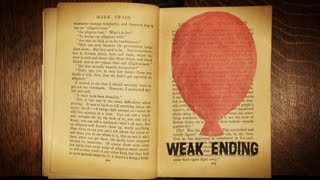(单词翻译:单击)
Mysteries of vernacular: Fizzle, to end weakly or to fail, to die out.
通用俗语的谜团:Fizzle,无力地结束,失败,消逝。
The definition of fizzle likely links back to the Old English word fist, which meant stink.
“Fizzle”的定义能追溯到古英语单词“fist”,意思是臭。
In the mid-fifteenth century, fist developed into the verb fisten, to break wind,
在15世纪中期,“fist”发展出了动词“fisten”,意思是放屁,
which eventually lead to the modern word feisty, but that's another story.
这个词后来又演变成了现代英语“feisty”,不过这就是另一个故事了。
In its earliest form, as a variant of fisten, fizzle had a very specific meaning: to break wind without noise.
“Fizzle”在其最早的形态中,作为“fisten”的变种,有很明确的含义:放屁不出声。
Surprisingly, considering this initial definition,
出人意料的是,考虑到这个词最初的定义
by the 1800s, the word fizzle referred instead to a specific sound, rather graphically,
到了19世纪时,fizzle指的却是一种特定的声音,而非一种图形化的方式
to the sputtering or hissing of a gas or liquid being forced out of a narrow opening.
用来形容气体或液体被迫离开狭窄通道时所发出的嘶嘶声。

The figurative sense of the word, a weak ending,
这个词喻指油尽灯枯,
is thus understandable within the context of a flame consuming the last drops of oil in a lantern
大致上可以用来形容火焰消耗灯笼中最后几滴油
or a valve drawing out the contents of the bottom of a cask.
或筒底气阀几近排尽的状态。
Though perhaps not derived directly from this subsiding verb, our modern meaning of fizzle developed as slang in the 1800s.
尽管可能不是直接从这个动词引申而来,“fizzle”的当代含义却是由19世纪的俚语发展而来。
Originally used on college campuses to describe failure, specifically on an exam,
原本用在大学校园中指代失败,尤其是考试挂科,
it wasn't long before the word came to mean exactly what it does today and was quickly and widely adopted.
很快其含义就变成了当今的含义,并被快速而广泛的采纳。


